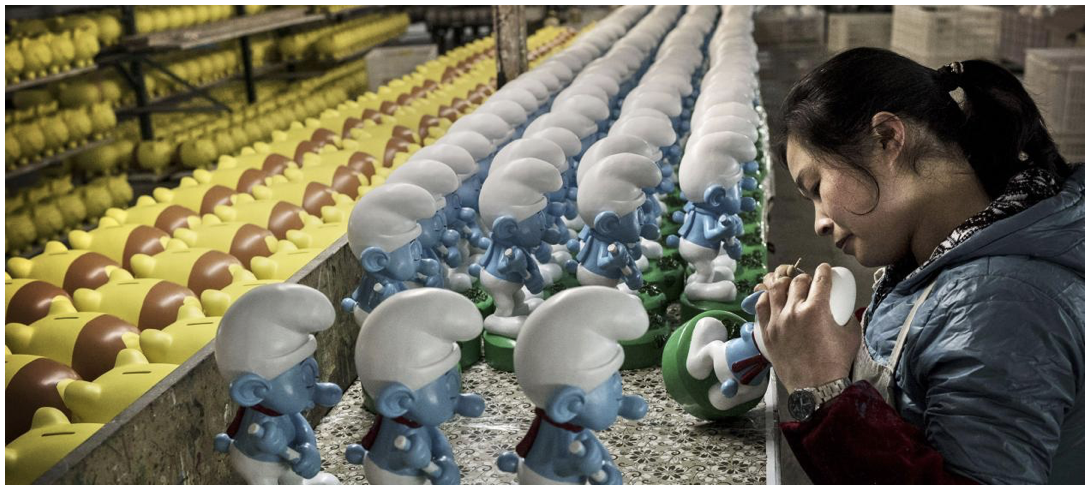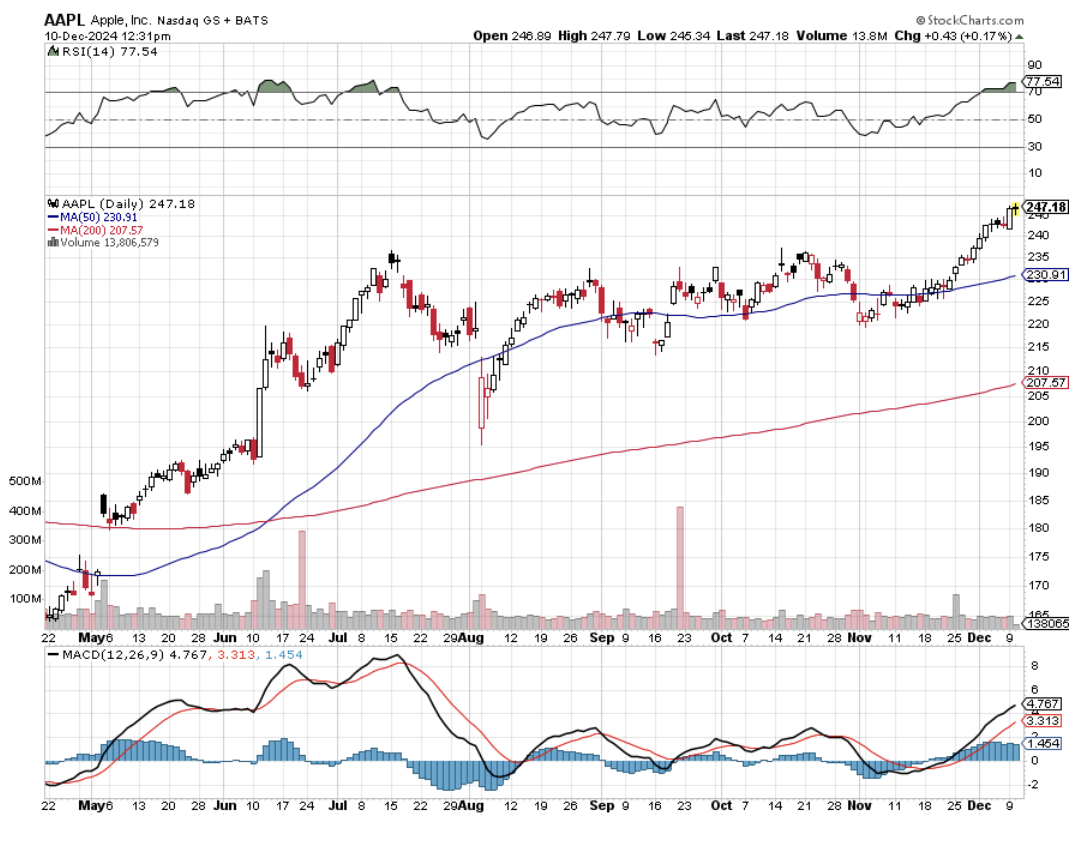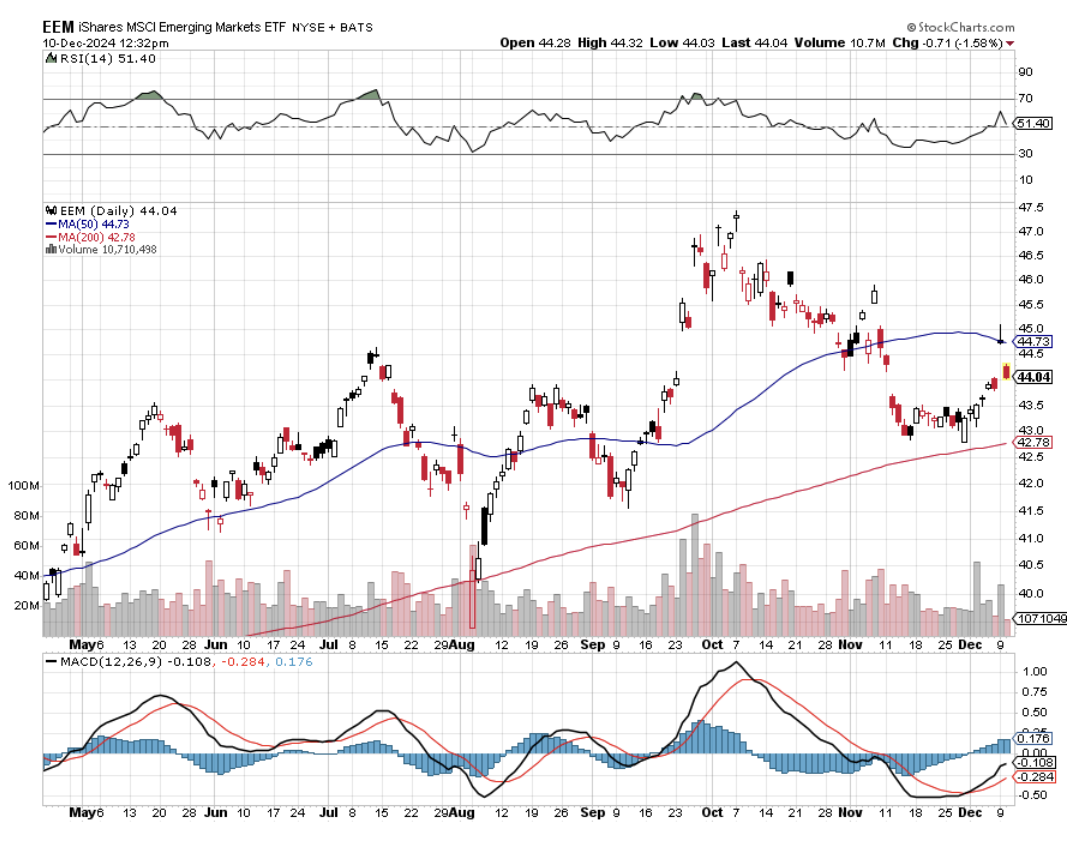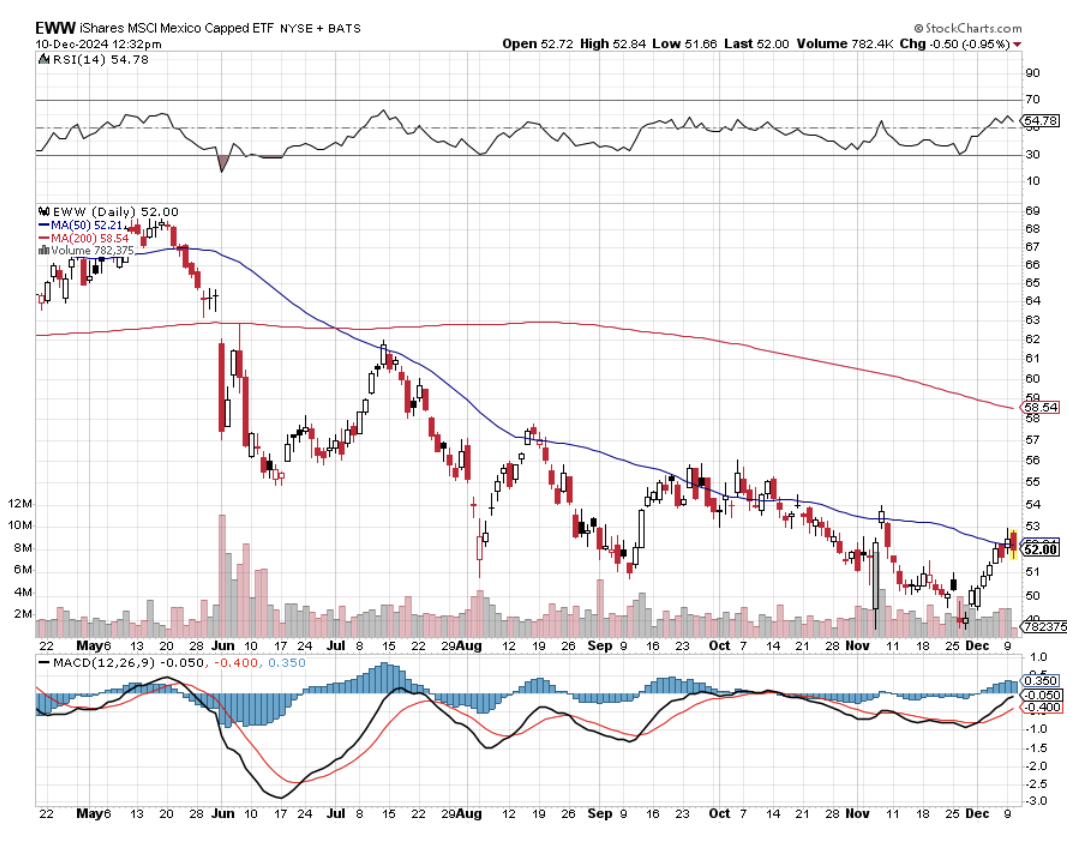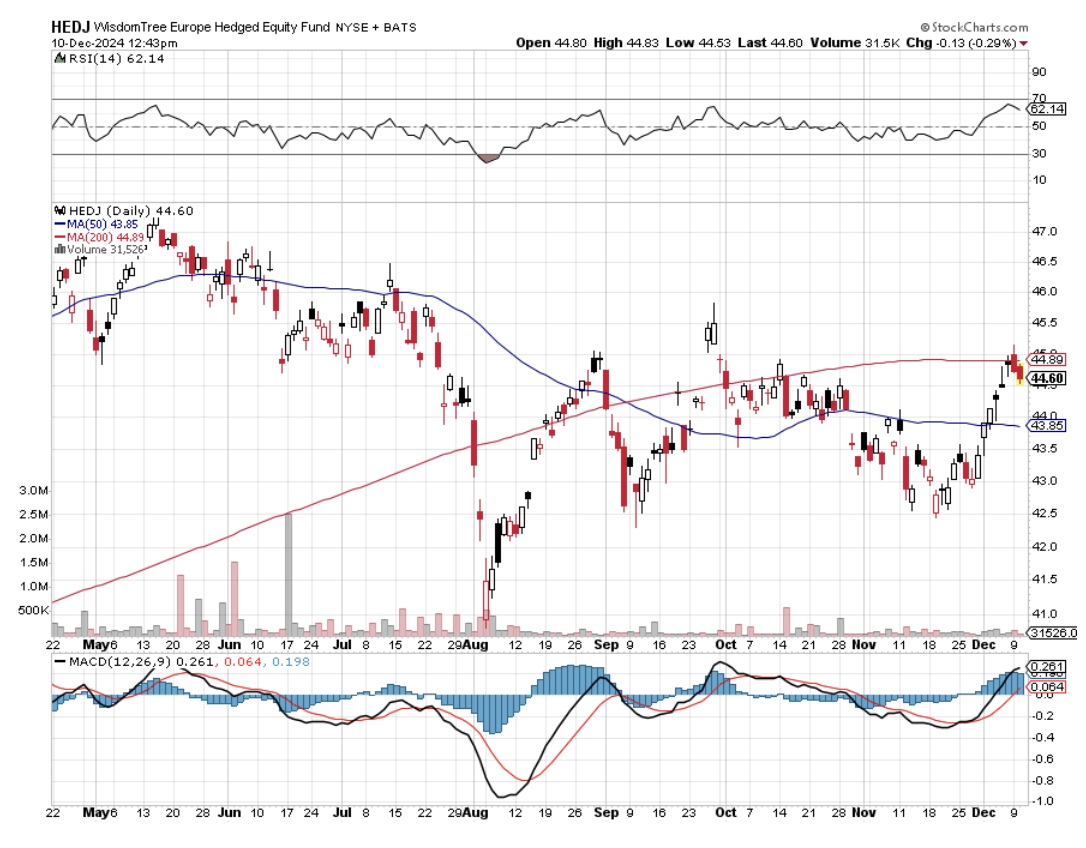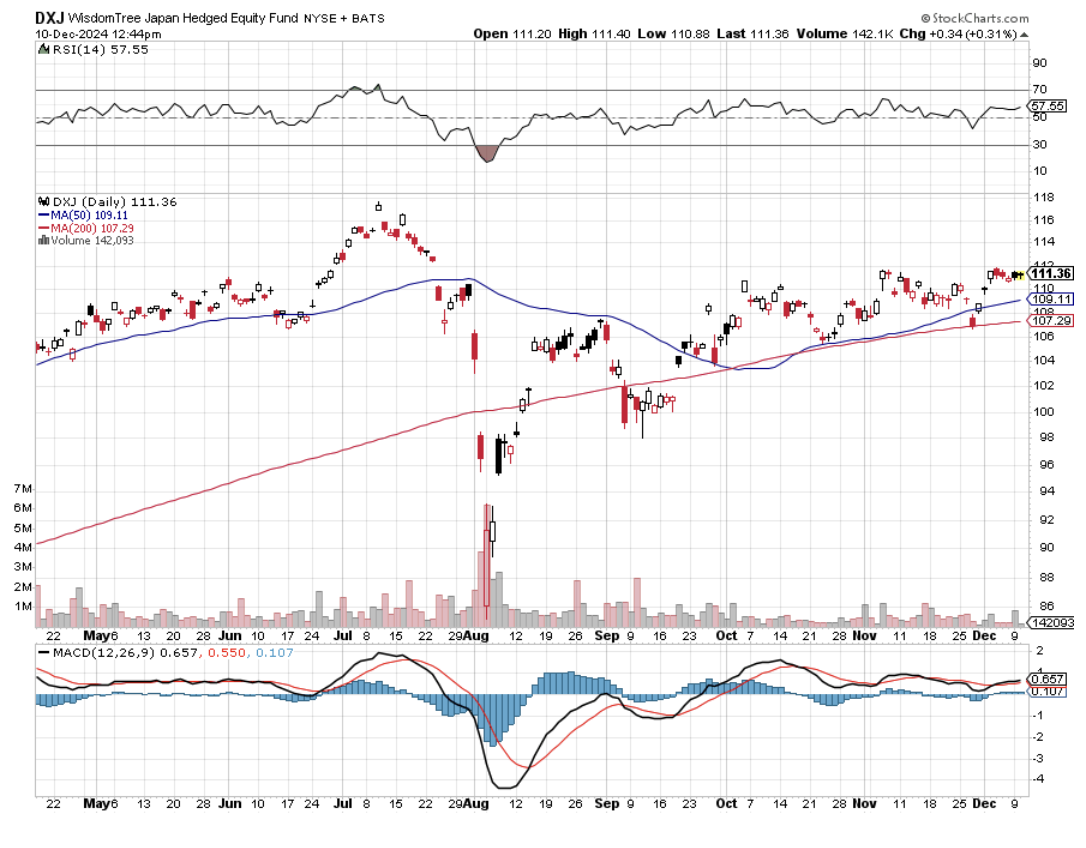Seven Reasons Why There Will Be No Trade War
I am a firm believer in the wisdom of crowds.
This means that markets made of millions of participants can see things well before any individual human can.
The consequences for your portfolio can be earthshaking.
So, while the president campaigned on promises that he would immediately impose a 25% import duty on Canada and Mexico, here we are, some 38 days post-election, and many stocks that would suffer from a trade war are doing nothing.
In other words, there ain’t going to be no stinking trade war.
Markets came to this conclusion months ago. You could see this in a whole host of different and disparate asset classes.
Technology is the big one.
The biggest victim of any trade war would be technology firms, which operate the most globalized business models on the planet.
They design products here in the US and use slave labor in China to assemble them for pennies on the dollar, free of wage, OSHA, environmental, health, and child labor concerns.
They then sell them in the US and around the world for enormous profits.
In a world careening off the globalization cliff, you would expect Apple (AAPL) shares to get a pasting.
Yet, the jewel of Silicon Valley has seen its shares rocket by 38.46% since the November 5 election and an eye-popping 12.27%.
Remember, at $3.73 trillion, this is the largest public company in the world doing this! While no one was watching, (AAPL) approached an incredible $4 trillion market cap.
No trade war here!
Look elsewhere across the investment universe, and you see the same thing happening everywhere.
Emerging markets (EEM), whose economies are highly dependent on a functioning global trade system, have been unchanged since November 5.
And what has been the best-performing emerging nation?
Mexico (EWW), which has usurped about one-third of the US car industry. The (EWW) is up slightly since the election.
Guess what?
Not only is there not going to be a stinking trade war, but there isn’t going to be a stinking wall with Mexico either, just a token, Erector Set, pretend one. A budget-balancing Congress won’t pay for it.
China ($SSEC) is posting respectable gains, up 6.3%. What’s more, stock markets in Japan (DXJ) and Europe (HEDJ) have been edging out gains.
So, where did the trade war go?
I’ll list seven of the most obvious reasons.
1) The US has been a massive beneficiary of the globalized trade system. It has allowed America to remain the world’s most dominant and successful economy since WWII.
It has also preserved the US dollar as the world’s preeminent reserve currency, an enormous free lunch for US citizens.
2) American companies have been globalizing for 80 years, making them the most efficient and profitable on the planet.
Many trillions of dollars have been poured into foreign manufacturing and distribution systems. It all runs like a fine-tuned Swiss watch.
It cannot be undone or turned off by the slash of a pen on an executive order. Companies are better off paying lip service to the White House, which they have been doing on a daily basis, and then carrying on as they always have been.
4) To retreat from globalized business models would reduce the profitability of US corporations and send share prices plummeting. There’s no way you increase labor costs from $8 an hour to $80 and then increase your dividend.
5) A retreat would also hand over the international trading system to the Chinese, not exactly a development in America’s self-interest.
6) Some of the most ardent globalizationists I know are the generals and admirals of the US military.
7) Not only are Americans making fortunes off of globalization, so are foreigners. Wealthy customers are the best ones to have. If they are getting rich off you, they tend not to bomb you.
When notified that the State Department budget was going to get cut by 30%, former Defense Secretary James Mattis, a friend, replied, “Then I’m going to need a lot more bullets.”
Bottom line: It’s cheaper to talk to people than to kill them.
Those who were around during the early days of the globalization, like myself, remember that it was originally conceived as a national defense strategy.
By trading with a potential adversary, you create an embedded core of local businessmen who don’t want any political stability or wars to interrupt their profit stream. When Putin came back into power, the first thing he did was remove Russia from the global trading system.
Since there isn’t going to be a trade war, the investment implications are obvious.
You want to use every dip to load the boat on every globalization stock out there, especially in technology.
How do You Spell “Made in USA?”

